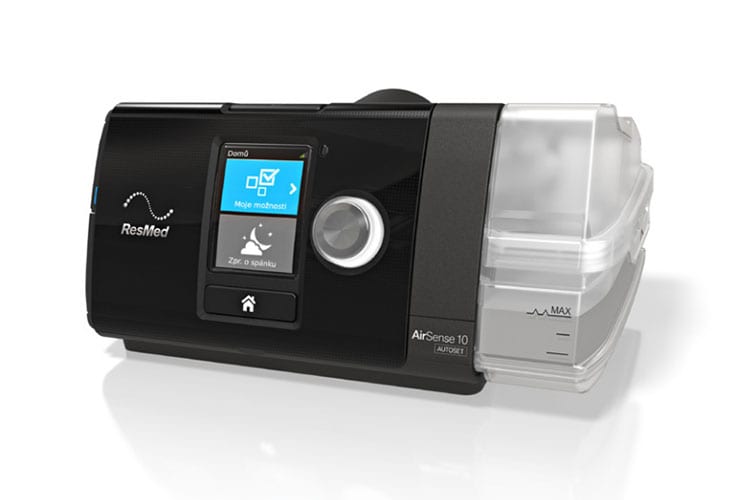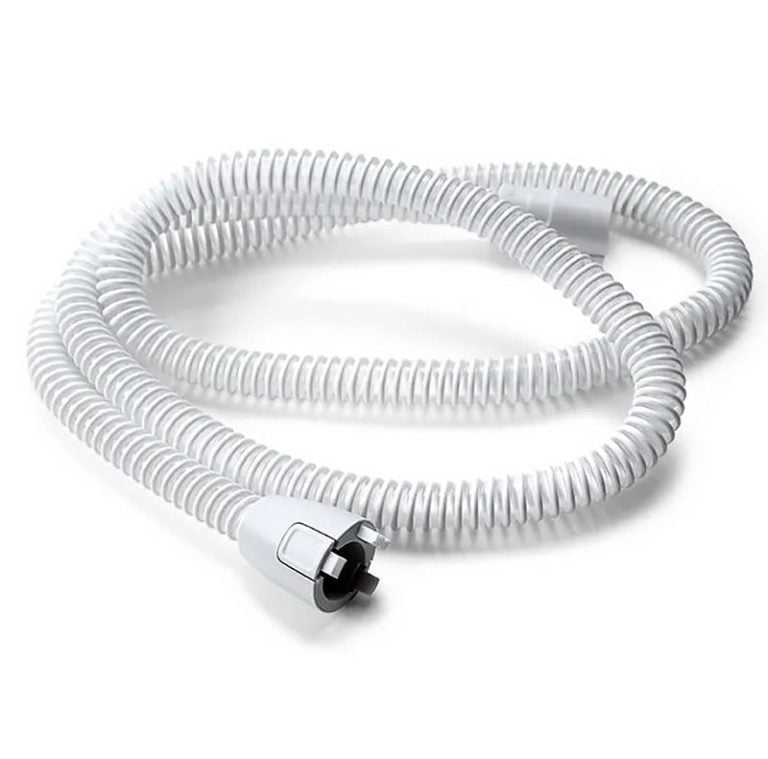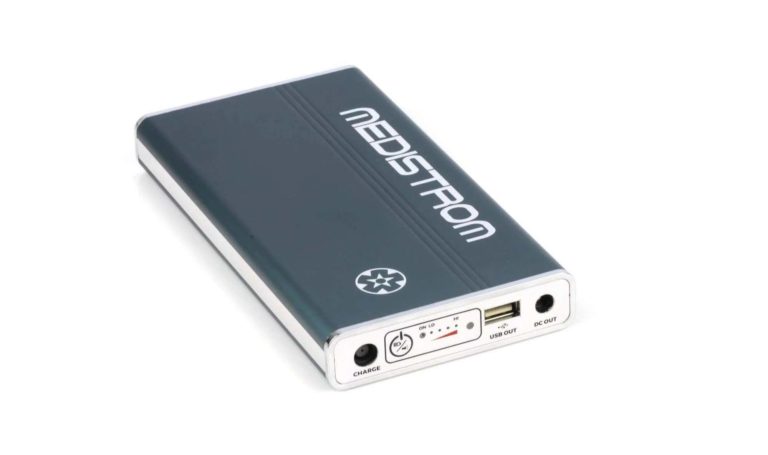When you buy through our links, we may earn a commission. Products or services may be offered by an affiliated entity. Learn more.
Best CPAP Supplies of 2026
Expert-Approved Picks
CPAP therapy is a sleep apnea treatment in which a machine delivers pressurized air through a hose and a mask to prevent the user’s upper airway from collapsing during sleep. Besides a CPAP machine, essential supplies include a mask, tubing, and replacement filters. Additional accessories such as mask liners and CPAP wipes are also offered as a way to make continuous positive airway pressure therapy easier and more comfortable.
We’ll sort through the different types of CPAP accessories and discuss how to know if you need a specific item, what to consider when shopping, and how to care for your equipment. We’ll also share our picks for the best CPAP supplies.
Our guide on the best CPAP machines can help you find a model that suits your therapy needs. We also have a guide to the best CPAP masks, which includes our top picks along with advice on how to find the right mask style.
Best CPAP Supplies: Our Top Picks
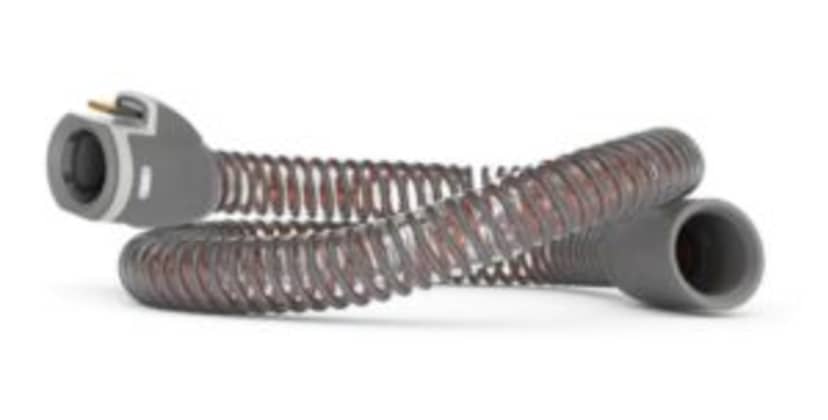
Best Tubing for ResMed CPAP Owners
ResMed ClimateLineAir 11 Heated Tubing
Shop Now
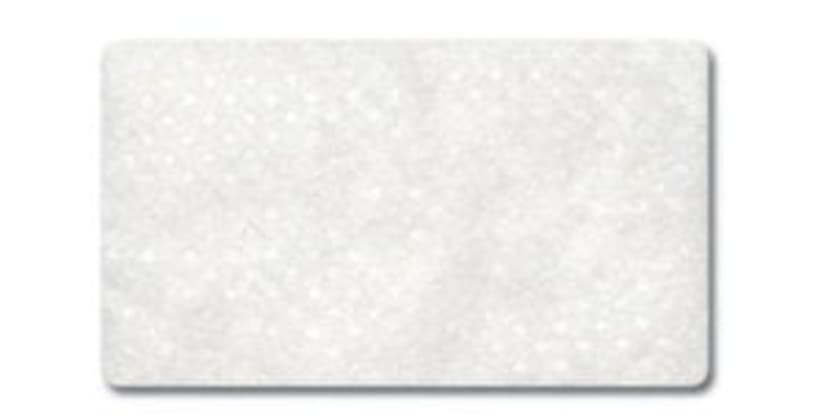
Best Filters for ResMed CPAP Owners
ResMed Replacement Filters
Shop Now
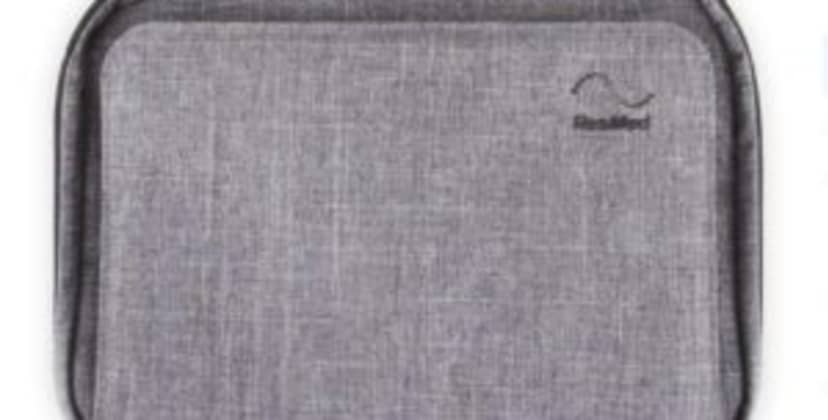
Best Travel Bag
ResMed AirMini Travel Bag
Shop Now
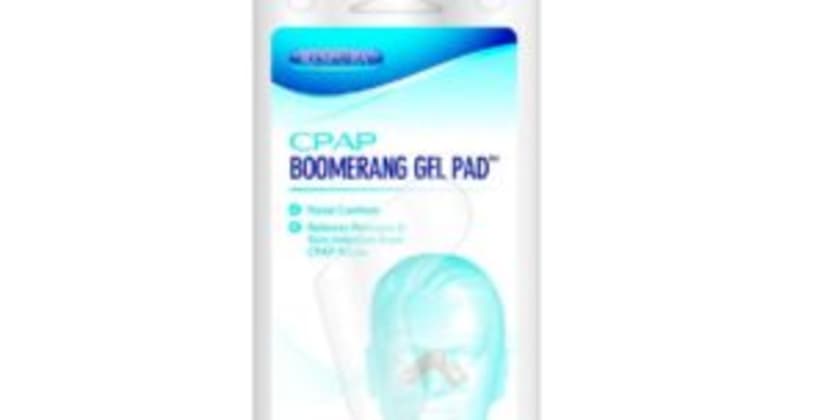
Best for Added Comfort
AG Industries CPAP Boomerang Gel Pad
Shop Now
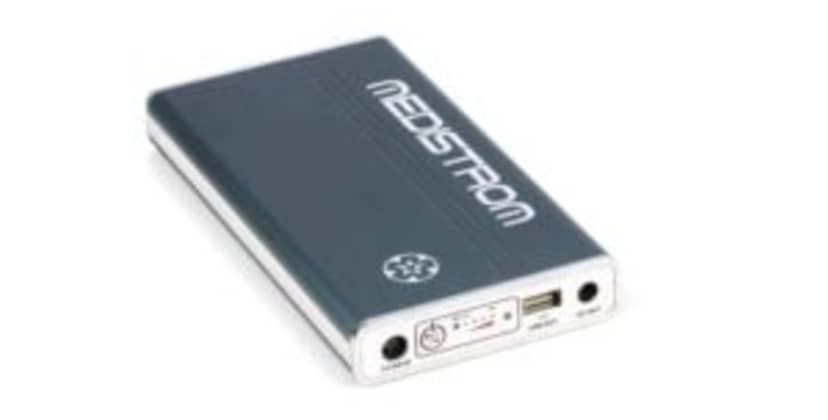
Best CPAP Battery
Medistrom Pilot-24 Lite Battery and Backup Power Supply
Shop Now
In-Depth Reviews
Best Tubing for ResMed CPAP Owners
ResMed ClimateLineAir 11 Heated Tubing
Use this link for the most current ResMed discount
Shop Now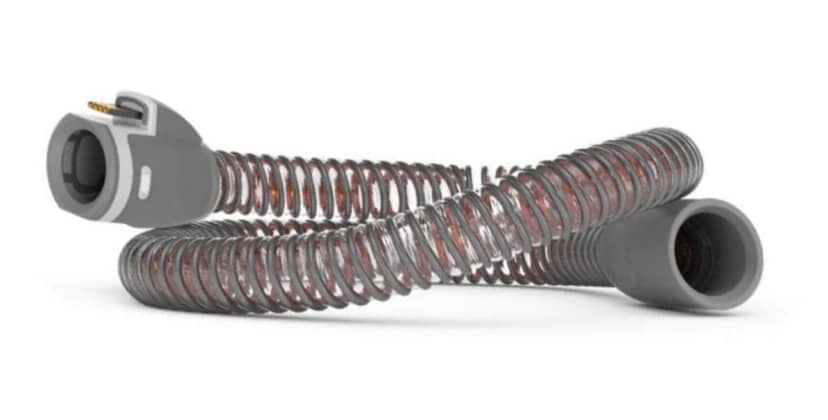
The ResMed ClimateLineAir 11 is one of the most advanced CPAP tubes on the market today. The automatic temperature adjustments should appeal to AirSense 11 owners who want tubing that adapts to their heat and humidity levels.
Pros
Reduces condensation by automatically adjusting the hose temperature
Slim, lightweight design is convenient for travel
Swivel connection adapts to different sleeping positions
Cons
Exclusively compatible with AirSense 11 devices
High price-point compared with nonheated tubing
Price
$46
Most heated CPAP tubing remains at a fixed temperature regardless of how hot or humid your bedroom feels. With the ResMed ClimateLineAir 11, the temperature falls between 60 and 86 degrees — a range that should satisfy most CPAP users. Note that the tubing is exclusively compatible with ResMed’s AirSense 11 CPAP machine.
What Does It Do?
The ClimateLineAir 11 measures 6.5 feet in length. Both ends swivel 360 degrees in either direction, ensuring a stable connection between your CPAP machine and mask even if you change sleep positions or toss and turn. Proprietary HumidAir technology monitors humidity and heat settings in the tube and mask, and the Auto Climate Mode function adjusts the temperature accordingly. This helps prevent rainout that occurs from condensation building up inside the tube. ResMed recommends cleaning the tube on a regular basis, and replacing it every six months.
Who It’s Best for
Automatic temperature adjustments are a major perk for any CPAP user who finds their tubing either too hot or too cold. Those who experience congestion can also benefit from the low potential for rainout. A flexible design with swiveling connectors at both ends makes the tube a great option for restless sleepers, as well as combination sleepers who frequently change positions during the night.
Since the ClimateLineAir 11 is only compatible with the AirSense 11, the tube is limited to those who use this CPAP device. The tube is also relatively short, so you should sleep no more than 6.5 feet from your CPAP machine.
The ClimateLineAir 11 is affordably priced, and those who opt for a subscription with Sleep Doctor receive an additional 5% discount on their purchase. Unused tubes can be returned within 30 days of delivery.
Best Filters for ResMed CPAP Owners
ResMed Replacement Filters
Use this link for the most current ResMed discount
Shop Now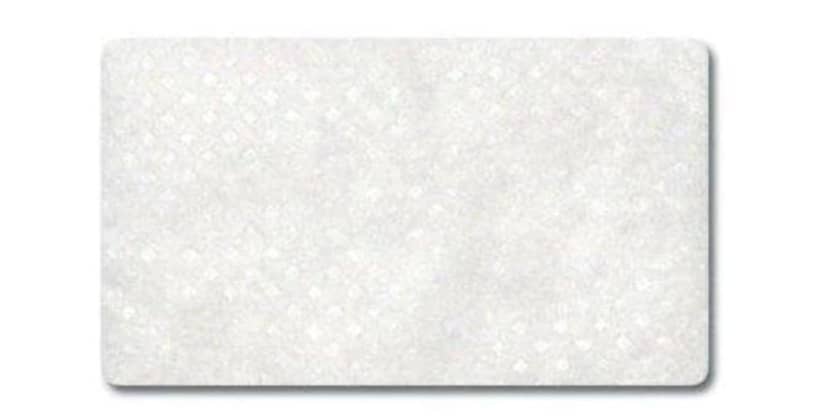
ResMed Replacement Filters are an indispensable accessory for AirSense and AirCurve owners. The ultrafine fibers block particulates of all sizes to ensure strong, steady airflow from your ResMed CPAP machine.
Pros
Effectively block pollen, dander, and other irritants and allergens
No need to clean
Competitively priced
Cons
Designed for use with ResMed AirSense 10 and AirCurve 10 machines only
Need to be replaced frequently
Price
$6
Changing the filters of your CPAP machine on a regular basis is crucial. If the filters are too old, dust and other contaminants can clog the device, forcing it to work harder to deliver pressure at your prescribed levels. These replacement filters from ResMed are designed to perform for two weeks. They are highly effective at preventing particulates from interfering with your therapy.
What Do They Do?
Each package contains two replacement filters composed of polypropylene and acrylic, both durable materials commonly used in filtration products. The fibers can block common household particulates such as pollen, dust, and pet dander. ResMed recommends replacing each filter after two weeks of use, or immediately if you suspect the filter has torn or otherwise become compromised.
Who It’s Best for
Every CPAP machine owner should replace their device’s filter on a regular basis. These particular filters are exclusively designed for ResMed’s AirSense and AirCurve machines. At less than $3 apiece, the filters are reasonably priced for shoppers with tight budgets. If you own a different device, you should be able to find a comparable set of filters at a competitive price-point.
If you purchase ResMed Replacement Filters from Sleep Doctor and sign up for a subscription with that site, you’ll receive an additional 5% discount on your order. Reasonable flat-rate shipping is also available for customers in the contiguous United States, and unopened filters can be returned within 30 days of delivery.
Best Travel Bag
ResMed AirMini Travel Bag
Use this link for the most current ResMed discount
Shop Now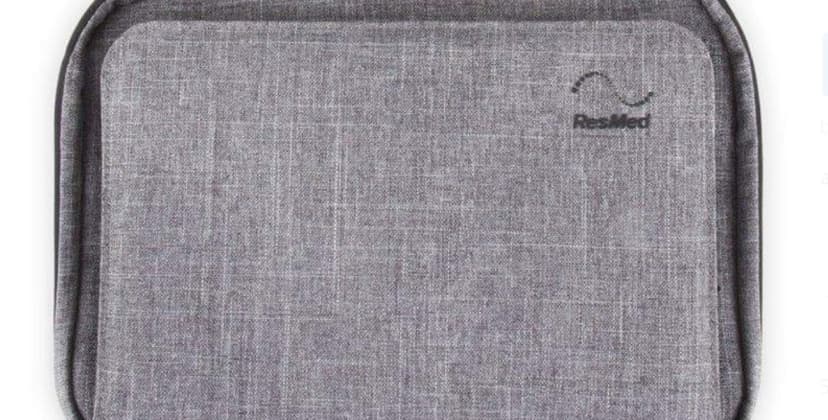
The AirMini Travel Bag is compact and stylish. Different compartments allow you to separate your device’s components and protect them from the elements, while an adjustable strap keeps you comfortable when you’re on the go.
Pros
Adjustable shoulder strap and robust design
Interior is divided into three separate compartments, plus a mesh pocket
Works with many other travel CPAP machines in addition to the AirMini
Cons
May not fit all travel CPAP devices
More expensive than competing models
Price
$59
If you use a CPAP machine and travel frequently, a portable bag for stowing your device’s various components is a must. The AirMini Travel Bag is specifically designed for ResMed’s CPAP device of the same name, but you can use the bag for any device as long as it doesn’t measure more than 12 inches long, 8.75 inches wide, and 3.25 inches thick.
What Does It Do?
The bag’s interior consists of three lined compartments for storing your machine, connective hose, and mask. An interior mesh pocket and outer pocket provide additional space for other personal items. The exterior fabric is durable and akin to upholstery cloth, so it should hold up well over time. The bag also includes an adjustable shoulder strap, which can be removed if you prefer to store your CPAP accessories in your luggage.
Who It’s Best for
Anyone who uses a travel-friendly CPAP machine should be able to use the bag — but if you don’t own the ResMed AirMini, double-check the dimensions to ensure your device and its components aren’t too large. Whether you prefer to carry your CPAP travel bag or stow it in your suitcase, the removable strap has you covered either way.
The AirMini Travel bag costs more than other comparable cases on the market today, but it’s still reasonably priced given its practical and long-lasting design. Sleep Doctor also offers affordable, flat-rate shipping for all orders within the contiguous United States. If you change your mind after ordering the bag, you may return it unused within 30 days of delivery.
Best for Added Comfort
AG Industries CPAP Boomerang Gel Pad
Use this link for the most current AG Industries discount
Shop Now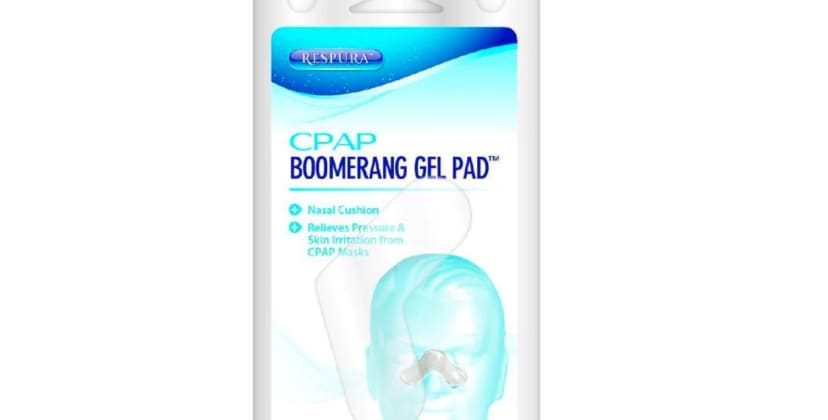
The CPAP Boomerang Gel Pad is a great solution to the irritation and red marks that often accompany CPAP therapy. The pad is affordable and reusable, and the gel provides a refreshingly cool sensation for your skin.
Pros
Designed to improve mask seal and prevent pressure points
Two sizes available
Can be used with almost any CPAP mask, including nasal and full-face models
Cons
Requires cleaning and regular replacement
Some users may have trouble finding a good fit
Price
$14
Irritation, redness, and forehead pressure are common side effects of CPAP therapy — particularly for anyone with a full-face or nasal mask that covers their nose. The CPAP Boomerang Gel Pads from AG Industries are applied to the bridge of your nose to serve as a thin layer of cushioning between your skin and the mask.
What Does It Do?
The pad is made of polymer gel with a slightly adhesive finish to keep it in place. The gel has cooling properties to soothe your irritated skin. In addition to reducing discomfort, the pad is thick enough to create a seal and reduce the potential for air leaks at the top of your mask.
Each box contains one pad. To clean the pad, wash it in warm or cold water and store the package away from direct sunlight. Be sure to wash before each use. AG Industries recommends replacing the pad after 30 days.
Who It’s Best for
Anyone can benefit from the Boomerang Gel Pad’s cooling and pain-relieving qualities, but this product is especially geared toward people with bulky masks that cover the bridge of their nose. You should also consider the pad if your mask is somewhat loose and prone to leakage, but you aren’t ready to invest in a new model.
Sleep Doctor offers a 5% discount on the CPAP Boomerang Gel Pad for customers who create a subscription with their purchase. Low, flat-rate delivery is available for orders in the contiguous United States, and you may return the pad within 30 days as long as it is unused and shipped back to Sleep Doctor in its original packaging.
Best CPAP Battery
Medistrom Pilot-24 Lite Battery and Backup Power Supply
Use this link for the most current Medistrom discount
Shop Now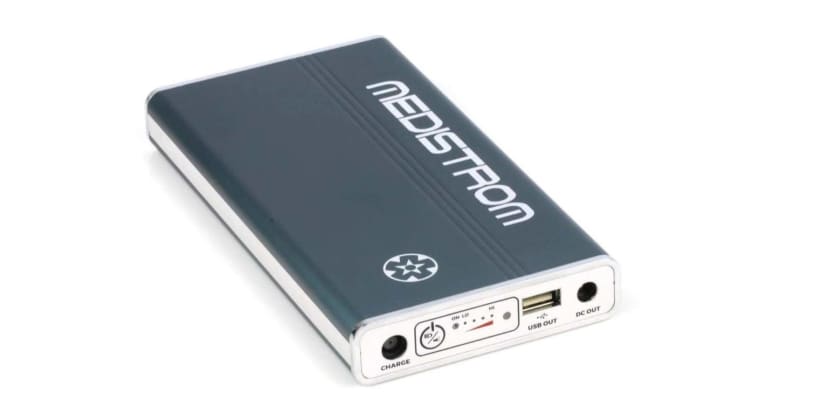
The Medistrom Pilot-24 Lite performs at a higher level than most CPAP batteries on the market today. In addition to powering your CPAP machine, the battery can also serve as a charging station for phones, tablets, and other electronic devices.
Pros
Single charge can power a CPAP machine for one to two nights
Can be taken aboard an airplane
Compatible with a range of CPAP machines from different brands
Cons
Relatively steep price-point
Takes two to three hours to fully charge
Price
$339
If you want to invest in a robust battery for your CPAP machine, Medistrom’s Pilot-24 Lite is one of the strongest options available. The battery operates for 8 to 16 hours, depending on your CPAP device’s pressure settings and power usage, but only requires up to 3 hours per recharge. The battery is also highly durable, and designed for more than 500 charge cycles.
What Does It Do?
The battery consists of an aluminum case and industrial-grade lithium ion cells. It weighs just over 1 pound and measures less than 1 inch thick, making it light and compact for travel. A built-in LED flashlight helps you navigate in the event of a power failure. The USB port also allows you to charge phones, tablets, and other electronic devices.
The battery is compatible with several leading CPAP machines. These include three devices from ResMed — the ResMed AirSense, AirMini, and AirCurve — as well as the Philips Respironics DreamStation Go, React Health’s Luna series, and the Apex Medical iCH. You can also use the battery with ResMed’s S9 CPAP and VPAP machines, though you’ll need to purchase an additional cable kit.
Who It’s Best for
People who frequently travel or camp, or who live in homes prone to blackouts, can all benefit from a backup battery for their CPAP machine. A backup battery allows you to maintain full compliance with your CPAP therapy even in the absence of a power source. The battery’s versatility also allows you to use it with a handful of standard and travel devices from leading CPAP brands. The sticker price might seem high at first glance, but the durable design ensures plenty of use.
Customers in the contiguous United States who order their Pilot-24 Lite from Sleep Doctor receive free ground shipping with their purchase. You can return the battery unused within 30 days of delivery, and Medistrom backs it with a one-year manufacturer’s warranty.
What Types of CPAP Supplies Are Available?
CPAP supplies encompass a wide range of accessories, some of which are necessary and some of which are simply nice to have. When deciding which accessories to purchase, consider how that item could help with CPAP therapy issues or special situations, such as travel.
Standard Supplies
Standard CPAP supplies include items that are required for CPAP treatment to work safely and effectively, such as the CPAP mask components, tubing, and filters. While you can’t skip these items, you may be able to choose from several different styles.
Mask Frames
The mask frame connects to the headgear and anchors the cushions in place. A properly fitting frame is essential to achieve a comfortable fit and prevent leaks. Frames are often sold in multiple sizes, and you can determine yours by consulting the manufacturer’s sizing guide.
Mask Cushions
Mask cushions come in different styles depending on whether they’re used for a nasal mask, full-face mask, or nasal pillow mask. Because they come in direct contact with the skin in order to form a seal, cushions are often made with flexible materials like silicone or memory foam to reduce chafing and irritation. While most frames and cushions are sold together, some models from the same brand may be interchangeable.
Headgear
At their most simple, CPAP headgear designs consist of one or two adjustable straps that wrap around the head to hold the mask in place. However, there are myriad models, with some offering forehead stability bars or innovative designs intended to provide a wider field of vision.
Hoses
Most CPAP hoses have a standard diameter and cuff size that are designed to connect the majority of machines to the majority of masks. Some manufacturers also offer slimmer tubing options and heated models, which may not be compatible with all machines. People who use a CPAP humidifier often prefer heated tubing since it can help prevent condensation from forming in the hose and mask. The majority of CPAP hoses are 6 feet long, though some manufacturers offer longer and shorter models.
Filters
There are three types of CPAP filters: reusable, disposable, and in-line. Reusable and disposable filters go inside the CPAP machine and trap particles such as dust, pollen, and smoke. Many CPAP machines require users to buy proprietary filters, as they all have slightly different shapes. In-line filters, which are less common, fit between the hose and the CPAP machine’s air outlet and filter out bacteria and viruses.
Optional Supplies
Optional supplies are not necessary for nightly CPAP therapy, but you may find them useful in certain cases. For example, travel accessories are helpful when you’re on the go, while items such as gel pads might be attractive for those with sensitive skin.
Humidifiers and Water Chambers
Humidifiers add moisture to the pressurized air, which can make CPAP therapy more comfortable and can reduce side effects such as dry mouth or throat irritation. The classic humidifier design works by passing air over a water reservoir before it enters the tubing, while a waterless humidifier — also known as a heat and moisture exchanger — attaches between the tubing and mask and repurposes moisture from your breath.
Many CPAP machines include a built-in humidifier with a detachable water chamber, but they can also be purchased separately. Extra features such as the ability to preheat the water or customize the humidity level can further improve your CPAP experience. Water chambers need to be regularly cleaned and occasionally replaced.
Chin Straps
A CPAP chin strap keeps your mouth closed while you sleep, which can reduce unwanted air leaks through the mouth when wearing a nasal mask or nasal pillow mask. Your doctor might recommend using a chin strap if you tend to breathe through your mouth and aren’t prone to nasal congestion.
CPAP Wipes
CPAP wipes are gently formulated wet wipes that you can use to remove residue from your mask or other equipment. Wipes are especially convenient when you’re traveling and don’t have easy access to fresh water. Be sure to only use CPAP wipes, as generic wet wipes can contain harsh ingredients that may be unsafe to breathe or may damage your CPAP equipment.
Batteries
There are many types of external batteries that can power your CPAP machine while on the road. The most common type is the lithium-ion battery, similar to what you’d find in a cell phone. Factors to consider when buying a battery include the size, the charging time, the run time, device compatibility, and whether the battery is approved for airplane travel.
CPAP Pillows
A CPAP pillow may have cutouts or other features to accommodate the CPAP mask and tubing so they are less likely to be pushed out of place when you change sleeping positions.
Heated Hoses
When humidified air travels along a cold length of tubing, it can form condensation that’s known as rainout. One way to prevent this uncomfortable phenomenon is by using a heated hose, which has copper coils that warm the air.
Mask Liners
Generally made of soft cloth, CPAP mask liners form a barrier between the mask and your skin, with the intent to reduce irritation. Wearing a mask liner may also protect against moisture buildup and even extend the lifespan of your CPAP mask cushions. Liners can be reusable or disposable, and you may need to hunt for one that fits your specific mask model.
How to Shop for CPAP Supplies
There are a few considerations to keep in mind when buying CPAP supplies, with the most important being the advice of your doctor.
Follow Doctor’s Orders
Since a prescription is required for sleep apnea treatment, your doctor or sleep specialist can work with you to find the CPAP mask and machine that are most appropriate for your situation. They may also suggest adding additional supplies based on your symptoms, such as a humidifier or heated tubing.
Consider Manufacturer’s Recommendations
Manufacturers tend to design product lines that work together and offer guidance on compatibility across products. Additionally, the manufacturer’s website may advertise additional products that you may not have considered.
Check Compatibility Between CPAP Accessories
While many CPAP accessories are standardized, specialized items such as travel CPAP machines and heated tubing may only work with specific units. Purchasing from the same manufacturer offers a higher chance of the components being compatible with one another. If you’re not sure whether a specific accessory is compatible with your CPAP setup, don’t be afraid to reach out to the manufacturer.
Where Can You Buy CPAP Supplies?
CPAP supplies are sold in brick-and-mortar stores as well as online. First-time buyers may feel more comfortable buying in a store or through their doctor, where they can get personalized recommendations. However, buying online is also attractive due to the wider selection and more competitive prices.
Prescriptions and Insurance Coverage
A prescription is required to purchase a CPAP machine, a CPAP humidifier, and a complete CPAP mask with a frame, headgear, and cushions. While most CPAP hoses do not require a prescription, certain heated tubing models do. Prescription-only CPAP products are only sold through authorized retailers. Other individual supplies, such as replacement mask parts or optional accessories, don’t require a prescription and are more widely available.
Many insurance plans cover part of the cost of CPAP supplies, particularly the necessary components such as the mask and machine. To remain eligible for coverage, you may need to prove that you use the device as prescribed and that it is helping treat your CPAP symptoms.
Dive Deeper: In-Depth CPAP Guides
If you still need to purchase a device to pair with CPAP accessories, check out our team’s picks for the best CPAP machines. And if you’d like more options for a specific category of CPAP supplies, we’ve also put together individual guides.
Data-Driven Results You Can Trust
The team at SleepFoundation.org has many years of experience evaluating sleep-related products. We formed our recommendations for the best CPAP supplies based on extensive research, in which we considered factors such as brand reliability, quality and design, user experience, and compatibility with other CPAP components.
Frequently Asked Questions
Which supplies are included with a CPAP machine?
A CPAP machine usually comes with a power cord, a filter, and a user guide. The machine may also come with tubing, an integrated humidifier, or extra accessories like a carrying case.
The mask may be bundled with the machine, but many CPAP retailers elect to sell the mask separately so shoppers can choose their preferred style. Replacement filters, mask parts, and other components usually need to be purchased separately.
How often should CPAP supplies be replaced?
A CPAP machine must be kept scrupulously clean to prevent germs from entering your airway. As part of CPAP maintenance, you’ll also need to replace certain parts on a regular basis. The following are general guidelines, though these may vary depending on the manufacturer and the specific product. Additionally, insurance carriers may have differing reimbursement schedules.
CPAP SuppliesSuggested ReplacementFrequency
Mask Cushions: 3 months
Mask Frame: 6 months
Headgear and Chin Straps: 6 months
Disposable Filters: 1 month
Reusable Filters: 6 months
Tubing: 6 months
Humidifier Water Chamber: 6 months
Does health insurance cover CPAP supplies?
Medicare, Medicaid, and many private insurance plans cover a portion of the cost of necessary CPAP supplies and some accessories. For supplies that need to be replaced frequently, your plan may offer coverage according to a schedule provided by the insurance carrier.
Where is the best place to buy CPAP supplies?
Budget-conscious shoppers or those buying out of pocket may prefer to purchase their supplies online, where there is a better range of prices and models. If your CPAP therapy is covered by insurance, you may be more interested in buying in person through a medical supply store or a sleep clinic, where you can also get personalized advice.

Still have questions?
Our product experts have extensive experience testing just about every sleep product on the market.
Send an email to AskAnExpert@sleepfoundation.org with your questions and we’ll help you find exactly what you’re looking for.



